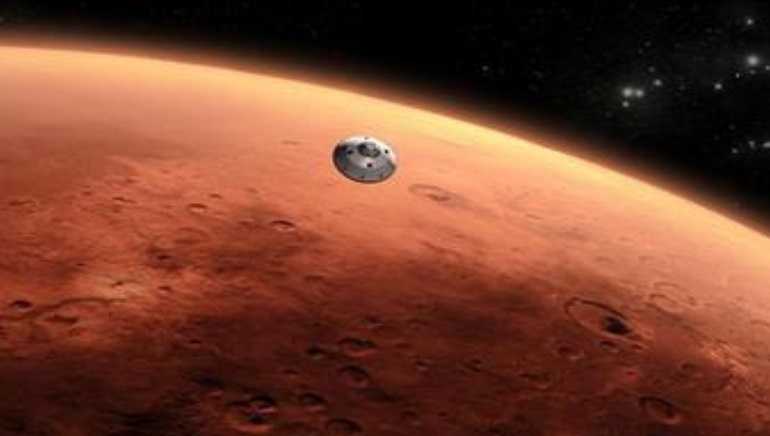Space scientists have discovered patterns on Mars that provide evidence of a cyclical climate similar to that of Earth’s, opening up new prospects for research into the origin of life. Using data from NASA’s Curiosity rover, the scientists at the French National Centre for Scientific Research, Université Toulouse III – Paul Sabatier and Université Claude Bernard Lyon 1, with the participation of French space agency CNES, made the new discovery.
Using the Mastcam1 and the ChemCam2 instruments on the rover, space scientists have discovered deposits of salts dating from 3.8 to 3.6 billion years ago on Mars. The salt deposits that form a hexagonal pattern in sedimentary layers present new evidence indicating an environment conducive to the emergence of life on the Red Planet.
The surface of Mars, unlike the surface of Earth, is not constantly renewed by plate tectonics, resulting in the preservation of huge areas of terrain abundant in fossil rivers and lakes dating back billions of years.
Since 2012, Curiosity has detected the presence of simple organic molecules that can be formed by geological as well as biological processes. This environment, in which simple organic molecules have already been discovered, may have provided ideal conditions for the formation of complex organic compounds.
The findings of the study were published in the journal Nature on 9 August 2023. This work opens up new prospects for research into the processes underlying the origin of life, of which no vestiges remain on Earth.















